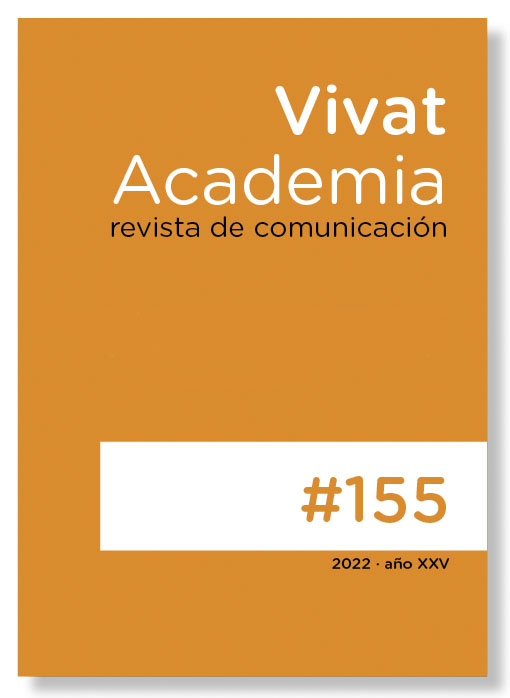From Occupation To Covid, Passing Through The M.E.N.A.S. Semipresential Dialogue As An Innovative Methodology Of Anthropological Learning
Main Article Content
Abstract
Downloads
Article Details

This work is licensed under a Creative Commons Attribution-NonCommercial-ShareAlike 4.0 International License.
References
Alonso, L. E. (1996). “El grupo de discusión en su práctica: memoria social intertextualidad y acción comunicativa”. Revista Internacional de Sociología, 13, 5‐36.
Arboleda, L. M. (2008) El grupo de discusión como aproximación metodológica en investigaciones cualitativas, Rev. Fac. Nac. Salud Pública 26(1). Universidad de Antioquía, Colombia, 69-77. https://www.redalyc.org/pdf/120/12026111.pdf
Duque, Elena y Prieto, Oscar (2009). El Aprendizaje Dialógico y sus aportaciones a la Teoría de la Educación. En Revista Electrónica Teoría de la Educación. Educación y Cultura en la Sociedad de la Información, Universidad de Salamanca, 7-30. https://www.redalyc.org/pdf/2010/201014898002.pdf
Greenwood, D. (2000). De la observación a la investigación-acción participativa: una visión crítica de las prácticas antropológicas. Revista de Antropología Social 9, 27-49. https://revistas.ucm.es/index.php/RASO/article/view/RASO0000110027A
Hernández Espinosa, Rafael (2007). Del colonialismo al colaboracionismo dialógico-crítico: una aproximación a la dimensión política y reflexiva de la Antropología en México. Revista de Antropología Iberoamericana 2, 303-322. http://www.aibr.org/antropologia/02v02/articulos/020204.php
Flecha, R. (1997). Compartiendo palabras. Barcelona: Paidós.
Lamela Viera, C. y Vázquez Silva, I. (2013). De la revitalización a la participación. Retos de la antropología urbana ante la “cultura cívica”. Zainak. 36, 483-493. https://www.academia.edu/15293487/De_la_revitalizaci%C3%B3n_a_la_participaci%C3%B3n_Retos_de_la_antropolog%C3%ADa_urbana_ante_la_cultura_c%C3%ADvica_
López Francés, Inmaculada. (2010). El grupo de discusión como estrategia metodológica de investigación: aplicación a un caso. Edetania, 38, 147-156.
Montañez Serrano, Manuel. (2010). El grupo de discusión. Cimas Cuadernos. Observatorio Internacional de ciudadanía y medio ambiente sostenible. https://www.redcimas.org/wordpress/wpcontent/uploads/2012/08/m_MMontanes_ElGRUPO.pdf
Muñoz, Bernardo. (1998). La política social y la participación ciudadana desde la óptica de la Antropología Social. La irreductibilidad de la política. Última Década 9, Cidpa Viña del Mar.
Muñoz, Jonathan (2013). El método dialógico. Una experiencia interdisciplinaria desde la Antropología. En Cuadernos de Antropología 23, 1-26. DOI 10.15517/CAT.V23I1.12834
Porto Pedrosa, L., y Ruiz San Román, J.A. (2014). Los grupos de discusión. En K. Sáenz López, & G. Támez González, Métodos y técnicas cualitativas y cuantitativas. México: Tirant Humanidades, 253-273. https://eprints.ucm.es/id/eprint/49454/1/2014%20grupos%20discusion%20-%20Porto%20Ruiz%20San%20Roman.pdf
Rodríguez Zoya, L. (2009). Desafíos pedagógicos de la enseñanza de metodología de la investigación: hacia una reconceptualización antropológica del sujeto de aprendizaje.Revista Investigación Educativa 2(2), 105-126. http://www.scielo.org.bo/scielo.php?script=sci_arttext&pid=S1997-40432009000200004&lng=es&nrm=iso
Salmerón, H. Rodríguez, S. y Gutiérrez, C. (2010). Metodologías que optimizan la comunicación en entornos de aprendizaje virtual. Revista Comunicar 34 (XVII), 163-171. http://dpoi.org/10.3916/C34-2010-03-16 .
Uribe Sánchez, J.L.E (2014). Dialéctica, diatópica y diálogo intercultural. Contribuciones a las Ciencias Sociales, diciembre 2014. https://www.eumed.net/rev/cccss/30/dialectica.html





